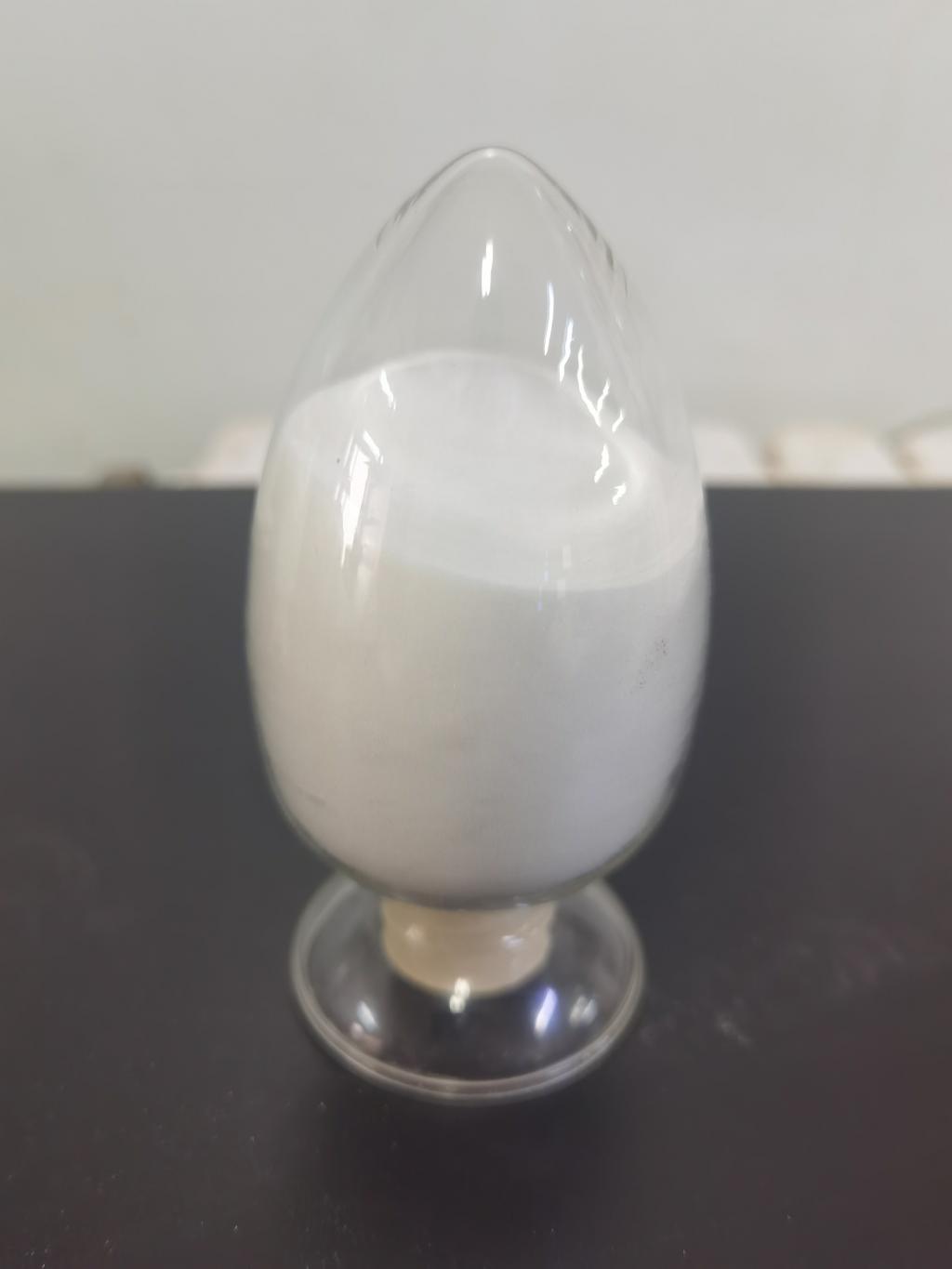Tel:+8618231198596

News
 CONTACT
CONTACT
 CONTACT
CONTACT
- Linkman:Linda Yao
- Tel: +8618231198596
- Email:linda.yao@dcpharma.cn
- Linkman:CHARLES.WANG
- Department:Overseas
- Tel: 0086 0311-85537378 0086 0311-85539701
News
Livestock feed additives containing ε-Polylysine hydrochloride promote animal health and welfare.
TIME:2024-03-26
Understanding ε-Polylysine Hydrochloride:
ε-Polylysine hydrochloride is a natural antimicrobial compound derived from fermentation processes, particularly from the bacterium Streptomyces albulus. It consists of a chain of lysine residues linked by peptide bonds, giving it antimicrobial properties against a wide range of microorganisms, including bacteria, fungi, and some viruses. ε-PL HCl is water-soluble, biodegradable, and non-toxic, making it suitable for use as a feed additive in livestock nutrition.
Promoting Animal Health and Welfare:
Disease Prevention: Livestock are susceptible to various infectious diseases caused by pathogenic microorganisms, leading to reduced productivity, increased mortality rates, and compromised animal welfare. ε-Polylysine hydrochloride feed additives help prevent disease outbreaks by inhibiting the growth and proliferation of harmful bacteria and fungi in the gastrointestinal tract and feed.
Gut Health: The gastrointestinal tract plays a crucial role in nutrient absorption, immune function, and overall animal health. Disruptions to gut health, such as dysbiosis or pathogen colonization, can impair digestive efficiency, increase susceptibility to disease, and compromise animal welfare. ε-PL HCl promotes gut health by maintaining a balanced microbial population, supporting intestinal integrity, and enhancing immune responses in livestock.
Stress Reduction: Livestock may experience stress due to environmental factors, management practices, transportation, or social interactions within group housing systems. Chronic stress can suppress immune function, increase susceptibility to disease, and negatively impact animal welfare. ε-Polylysine hydrochloride feed additives help alleviate stress by modulating stress-related responses, reducing cortisol levels, and promoting a calmer and more resilient physiological state in livestock.
Antibiotic Alternatives: With increasing concerns about antimicrobial resistance and the use of antibiotics in animal agriculture, there is growing interest in exploring alternative strategies for disease prevention and growth promotion in livestock. ε-Polylysine hydrochloride offers a natural alternative to antibiotics, with antimicrobial properties that target pathogens without promoting resistance development or disrupting beneficial gut microbiota.
Applications in Livestock Nutrition:
Poultry Production: In poultry farming, ε-Polylysine hydrochloride feed additives are used to improve growth performance, enhance feed efficiency, and support immune function in broilers, layers, and breeders. By promoting gut health and reducing the incidence of intestinal infections, ε-PL HCl contributes to optimal growth rates, uniformity, and overall welfare in poultry flocks.
Swine Nutrition: Swine raised for meat production can benefit from ε-Polylysine hydrochloride supplementation in feed formulations. ε-PL HCl supports digestive health, reduces the risk of enteric diseases such as swine dysentery and post-weaning diarrhea, and enhances growth performance in growing and finishing pigs. Improved gut integrity and immune function contribute to better feed conversion efficiency and profitability in swine production.
Dairy and Beef Cattle: Dairy and beef cattle require balanced nutrition to support milk production, growth, and reproductive performance. ε-Polylysine hydrochloride feed additives can be incorporated into rations for dairy cows, beef cattle, and calves to improve rumen health, enhance nutrient utilization, and reduce the incidence of metabolic disorders and infectious diseases. Healthy, well-nourished cattle exhibit improved milk yields, body condition, and overall welfare.
Aquaculture: In aquaculture, ε-Polylysine hydrochloride is used as a feed additive for farmed fish and shrimp to control bacterial infections, improve water quality, and enhance growth rates. By reducing the prevalence of pathogens in aquaculture systems, ε-PL HCl supports sustainable fish farming practices and ensures the health and welfare of farmed aquatic species.
Benefits of ε-Polylysine Hydrochloride Feed Additives:
Improved Animal Health: ε-Polylysine hydrochloride feed additives promote optimal health outcomes by supporting gut health, enhancing immune function, and reducing the incidence of infectious diseases in livestock populations. Healthy animals exhibit better growth performance, reproductive success, and overall welfare, leading to higher productivity and profitability for producers.
Enhanced Feed Efficiency: By promoting nutrient absorption, reducing digestive disorders, and supporting metabolic processes, ε-PL HCl improves feed efficiency and conversion rates in livestock. Animals fed with ε-Polylysine hydrochloride-supplemented diets utilize nutrients more effectively, resulting in improved growth rates, feed utilization, and economic returns for producers.
Sustainable Production: The use of ε-Polylysine hydrochloride feed additives contributes to sustainable livestock production practices by reducing reliance on antibiotics, minimizing disease risks, and optimizing resource use efficiency. Sustainable production systems prioritize animal welfare, environmental stewardship, and social responsibility, aligning with consumer preferences for ethically produced food products.
Consumer Confidence: Consumers are increasingly concerned about the safety, quality, and sustainability of the food they consume, including animal-derived products such as meat, eggs, and dairy. Livestock raised with ε-Polylysine hydrochloride feed additives offer consumers reassurance regarding animal welfare, antibiotic stewardship, and product safety, enhancing consumer confidence and trust in the food supply chain.
Challenges and Considerations:
Formulation and Dosage: The efficacy of ε-Polylysine hydrochloride feed additives may vary depending on factors such as formulation, dosage, and application method. Optimal formulation and dosage regimes should be determined through research and field trials to maximize the health and welfare benefits for livestock.
Regulatory Approval: The use of ε-Polylysine hydrochloride as a feed additive may require regulatory approval and compliance with feed safety standards in different jurisdictions. Manufacturers and producers should ensure that ε-PL HCl-based products meet regulatory requirements and labeling guidelines for use in livestock nutrition.
Education and Awareness: Increasing awareness and understanding of the benefits of ε-Polylysine hydrochloride feed additives among farmers, veterinarians, and industry stakeholders is essential for promoting adoption and uptake in livestock production systems. Educational programs, technical support, and knowledge-sharing initiatives can facilitate the implementation of ε-PL HCl-based strategies for improving animal health and welfare.
Conclusion:
ε-Polylysine hydrochloride feed additives offer significant potential for promoting animal health and welfare in livestock production systems. By supporting gut health, enhancing immune function, and reducing the incidence of infectious diseases, ε-PL HCl contributes to improved growth performance, feed efficiency, and overall welfare outcomes for livestock. Sustainable farming practices that prioritize animal health and well-being align with consumer preferences for ethically produced food products and contribute to the long-term viability of the livestock industry.
- Tel:+8618231198596
- Whatsapp:18231198596
- Chat With Skype







